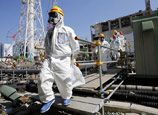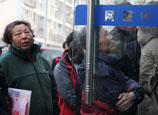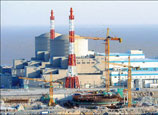
CHINA is looking to promote more civilian uses of its Beidou sat-nav system, scientists and industry figures told a seminar in Shanghai yesterday.
Applications could include a role in driving tests, typhoon and landslide monitoring, traffic management, agriculture, manufacturing, surveying and mapping, the Beidou seminar in Jiading District heard.
Beidou has already proven itself in defense, communications, state grids and national safety plans, leading the national government to expand its uses.
Experts at the seminar said promoting Beidou's civil uses can help bring its price down and break the market domination of overseas companies.
Combining the US global position system (GPS) and China's Beidou - also known as Compass - yields better results than only one system, as their respective satellite network coverages have strengths and weaknesses, said experts.
"A new driver exam system based on Beidou and GPS can be accurate to the millimeter and is used in 17 provinces," said Wang Chang, manager of Shanghai Compass Navigation Co, one of the developers.
Previously judging parking and other manoeuvres depended on sensors, which can be influenced by weather and electromagnetic interference.
"The new system is fairer. It is being created in Shanghai to be introduced soon," said Wang.
For disaster prevention and control, the combination of Beidou and GPS has been tested in bridge and landslide monitoring.
China started to build up its own sat-nav system in 2000. Beidou currently has 14 satellites in its network.
















 Hot weather in Chongqing, Beijing vs. Spring snow hits Urumqi
Hot weather in Chongqing, Beijing vs. Spring snow hits Urumqi


![]()
